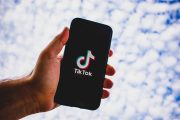
Social networking site Twitter sued Tesla CEO Elon Musk on Tuesday, claiming breach of contract. Musk offered to buy the site in April for $46.5 billion, subject to disclosures about how many advertising “bots” (robots) make up the site’s 200 million-plus users.
Last week Musk reneged on the deal, claiming that Twitter failed to provide him with sufficient proof that those “bots” make up less than five percent of its users, as the company has consistently claimed.
The lawsuit gave this summary:
In April 2022, Elon Musk entered into a binding merger agreement with Twitter, promising to use his best efforts to get the deal done.
Now, less than three months later, Musk refuses to honor his obligations to Twitter and its stockholders because the deal he signed no longer serves his personal interests.
Having mounted a public spectacle to put Twitter in play, and having proposed and then signed a seller-friendly merger agreement, Musk apparently believes that he — unlike every other party subject to Delaware contract law — is free to change his mind, trash the company, disrupt its operations, destroy stockholder value, and walk away.
This repudiation follows a long list of material contractual breaches by Musk that have cast a pall over Twitter and its business.
Twitter brings this action to enjoin Musk from further breaches, to compel Musk to fulfill his legal obligations, and to compel consummation of the merger upon satisfaction of the few outstanding conditions.
In covering the developing story yesterday, The New American quoted attorney Matt Levine, who suggested there were only two likely outcomes from such a lawsuit: 1) the Delaware court rules for Twitter, forcing Musk to pay the $1 billion termination fee plus Twitter’s legal fees, or 2) the court forces Musk to go through with the deal, buying the 800 million shares outstanding at $54.20 per share.
At the close of business on Tuesday, Twitter traded at a little over $34 per share.
However, there is a least one other option: that Musk will use Twitter’s lawsuit as a negotiating tool to obtain a lower price.
Here’s the reasoning: Twitter claims it has given Musk all the information he demanded in the purchase agreement concerning those pesky advertising bots. For years the company has reported to the Securities and Exchange Commission (SEC) that they represent “less than five percent” of the 200 million users currently present on the site, along with a disclaimer that that number is only a rough estimate, subject to change.
But, as Musk’s lawyer noted on Friday, Twitter itself is “in material breach of multiple provisions” of the purchase agreement.
Twitter has requested an “expedited” trial date for September:
Expedition is essential to permit Twitter to secure the benefit of its bargain, to address Musk’s continuing breaches, and to protect Twitter and its stockholders from the continuing market risk and operational harm resulting from Musk’s attempt to bully his way out of an airtight merger agreement.
Part of the discovery process in that trial (if it happens) will finally reveal what percentage those “bots” make up of the Twitter universe. Musk is persuaded that it’s much higher than Twitter claims, perhaps as many as one in every five users.
If that proves to be the case, this opens a Pandora’s box for Twitter. It could be accused of defrauding its advertisers, making false statements to the SEC, and exposing the company’s board of directors to charges they breached their fiduciary duty to protect the interests of the company’s stockholders.
This would exacerbate the company’s declining stock price, putting the present offer by Musk even further out of reach.
Since there are no other suitors interested in purchasing Twitter, the board would be pressed to renegotiate a lower price with Musk.
Related article:




